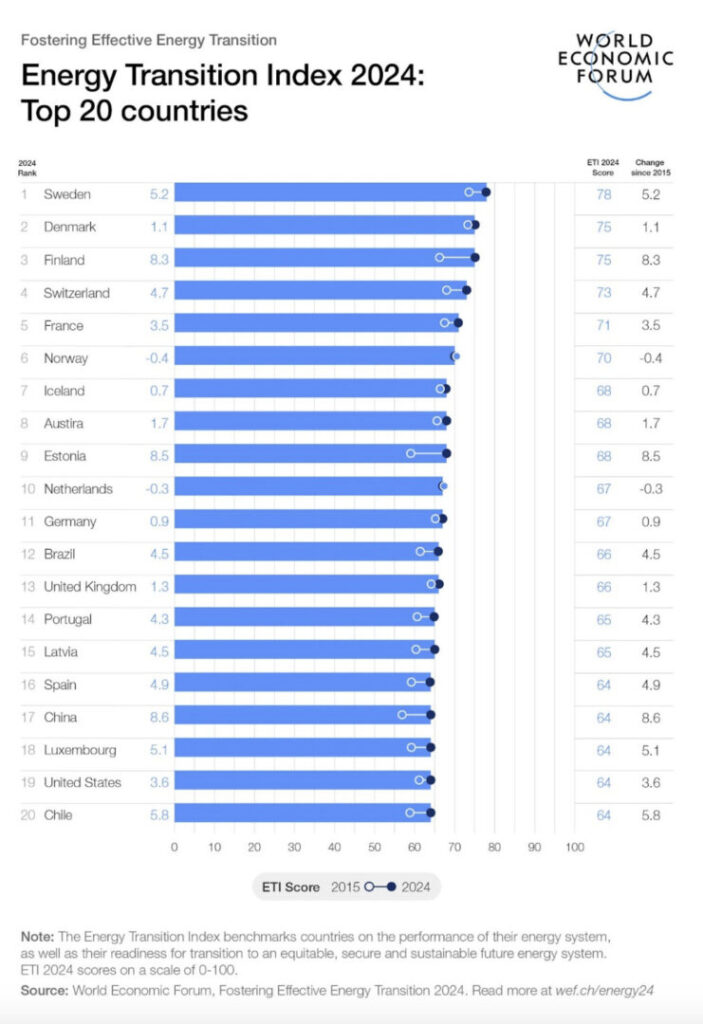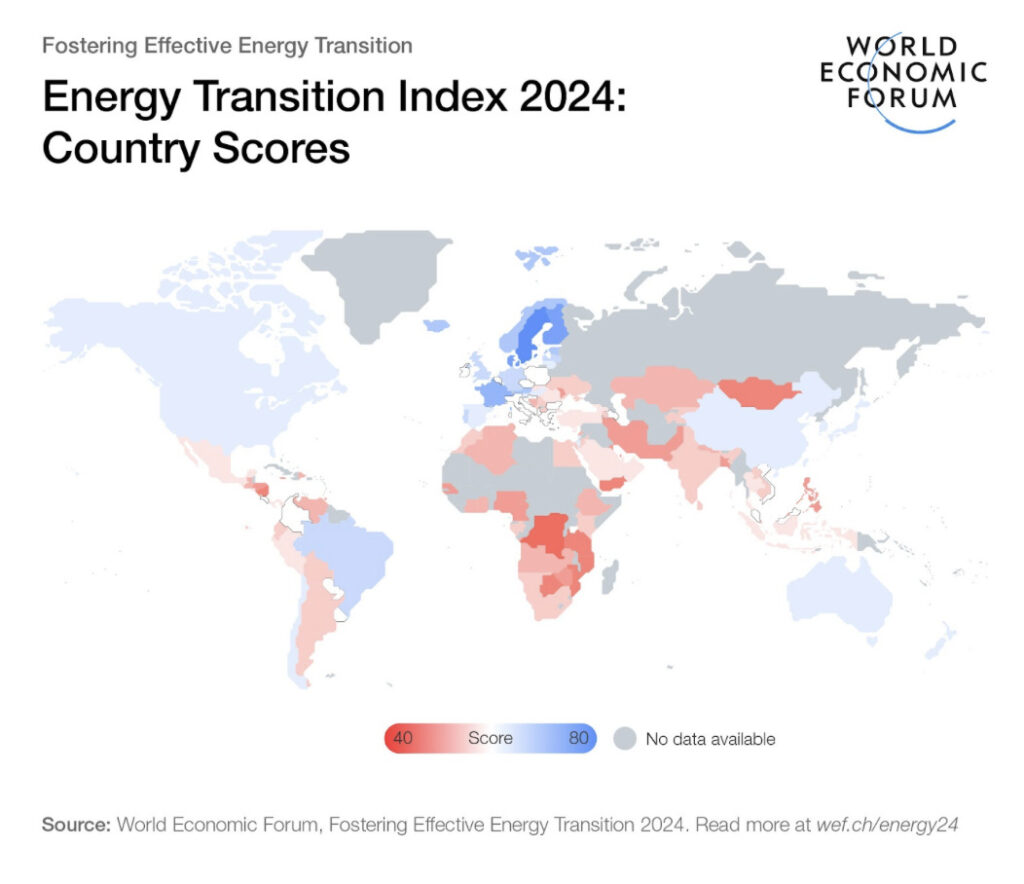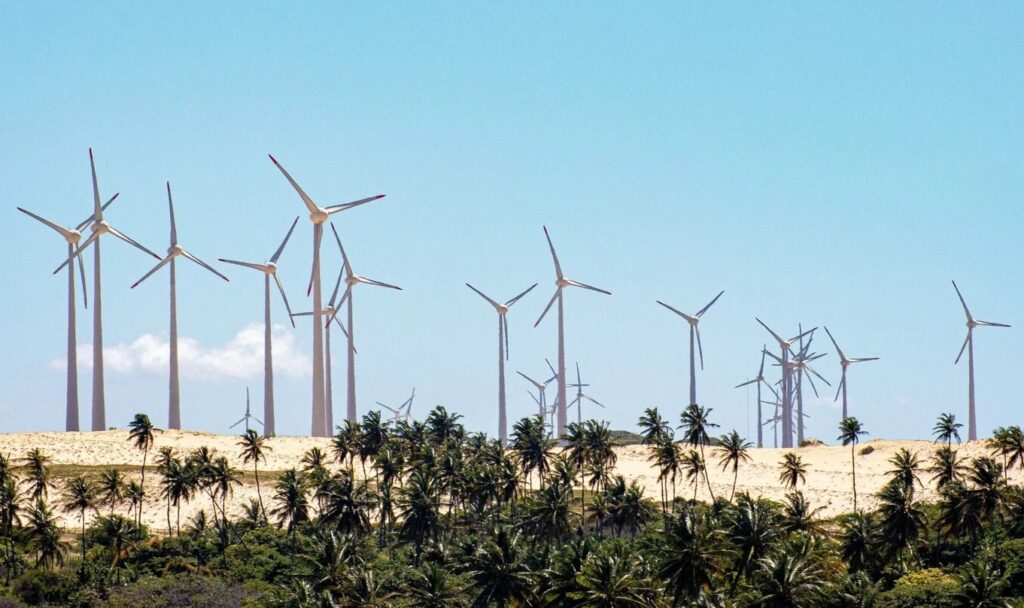In a global context where limiting the global warming at 1.5 °C is crucial, the energy transition is unevenly distributed among the different regions of the world. In the case of Latin Americathat effort is spearheaded by Brazil y Chiledespite the challenges the region faces.
The Fostering Effective Transition 2024 Reportpublished by the World Economic Forum in collaboration with AccentureThe disparity is underscored by the disparity. The 10 leading countries in the energy transition only account for 1% of the global CO2 emissions energy-related, although they play a crucial role in creating an environment conducive to energy efficiency. decarbonization.
Energy-related emissions are responsible for more than 80% of the world's total emissions. total emissions decarbonizing industries and securing the supply of energy, so decarbonizing industries and securing the supply of energy clean energyThe need to do so, leaving no one behind, is more urgent than ever.
The report evaluates the performance of 120 countries in terms of equity, environmental sustainability y energy securityby means of the Energy Transition Index (ETI).
While the European countries lead the global ranking, in Latin America and the Caribbean, Brazil y Chile stand out. Both countries are ranked among the top 20 in the ETI index, thanks to their sustained efforts in energy diversification and adoption of renewable energies.

Brazil and Chile: regional pioneers in renewable energy
Brazil has significantly increased its renewable energy capacity, harnessing hydro, biofuels, solar and wind. Its long-term commitment and focus on robust policies have created a favorable ecosystem for renewable energy. energy transition. Brazil currently consumes almost half of its energy from renewable sources and, as president of the G20, emphasizes the social dimension of reducing fossil fuels.
Chile, for its part, generates 35% of its energy from solar and wind sources, backed by strong political and business support. Aiming to reach 70% of energy consumption in the next few years. renewable energy and become carbon neutral by 2050, Chile demonstrates a strong commitment to the energy transition.
Challenges and opportunities in Latin America and the Caribbean
Despite the progress made by Brazil and Chile, the report notes that Latin America and the Caribbean have had the slowest growth in the last decade in terms of ETI. The region faces infrastructure challenges and needs to improve equity in energy access. Investment in renewable energies has decreased by 70% over the last ten years, complicating the picture.
Costa Rica y Paraguay lead in sustainability, but the region must address the volatility of gas and electricity prices. It is crucial to expand infrastructure and improve grid interconnection to boost the development of renewable energy.
The global energy transition scenario
At the global level, the pace of energy transition has slowed down. To achieve global energy goals, international support tailored to each country's needs is essential, especially in emerging and developing economies. Investments in energy infrastructure clean energy 1.8 trillion in 2023, but most of it was in advanced economies and China.

The report highlights the opportunities presented by digital innovation, such as the generative artificial intelligencefor the energy sector. However, these technologies increase electricity demand, so it is necessary to manage them efficiently with clean energy.
Brazil and Chile, with their successes and strategies, can offer valuable lessons to their neighbors. The energy transition requires decisive action and international collaboration to ensure an equitable, secure and sustainable future.
Source: World Economic Forum


